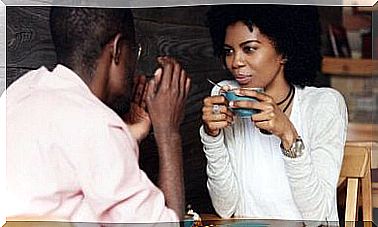The Emotions That Motherhood Brings

Motherhood brings with it a torrent of emotions. The moment you see your baby’s face for the first time, you can feel joy, fear, longing… You have just met the person who will probably, from this moment on, be the center of your life, and you still haven’t you know exactly how you feel about him or her.
It increases the release of the love hormone, oxytocin. She is responsible for the love we feel for our children and for the sense of responsibility and protection that suffuses us whenever we look at them.
Keep in mind that, psychologically, the big change that the arrival of one more family member represents for our lives can make the postpartum period, also known as quarantine, not meet the expectations we had.
This time is essential to adapt to the new situation, and we should not feel guilty about it, believe that we are not good mothers, let alone allow someone else to do that. The support of the partner, family and friends is essential during this period.
the mind after childbirth
As we have already mentioned in this article, pregnant women, especially if they are “first-time mothers”, have unrealistic expectations about motherhood. Our mothers, grandmothers, aunts or neighbors are responsible for telling you during the nine months how wonderful it is to be a mother and you look forward to this moment when you will become the happiest person in the world.
Watch out! The maternal feeling doesn’t just happen by magic. All the people who told you that this time in their lives was wonderful are not lying, but they didn’t remember to tell you that we all need a period of adjustment in the face of important new situations, and that this is absolutely normal.

In this way, feelings of guilt can arise due to negative automatic thoughts, such as: I’m not good for being a mother, my child will have traumas because I’m not doing my part well, my life is over, etc…
It is important to detect these negative thoughts in order to fight them and replace them with more realistic and positive ones. Otherwise, guilt can turn into deep sadness or depression, or it will make us enter a vicious circle where we no longer want to take care of the baby, or we may even neglect our own lives, increasing the intensity of initial feelings.
In addition to the hormonal and psychological changes that occur in the postpartum period, we will also suffer other changes in daily life: lack of sleep, lack of time for ourselves, intimacy with our partner, visits and more visits, etc. All of this further fuels our negative emotions that we feel in the first few weeks.
Live motherhood positively
The good news is that everything ends up passing away. Although being a mother initially seems complicated and you feel very bad, your hormonal system and your adaptability will turn what seemed like hell into paradise. However, as much as nature helps us, we need to do our part.
To begin with, you must accept the moment you are living in, as well as the emotions that are inevitably associated with it. The changes that have taken place in your life are very big and it is normal and tolerable to have mixed feelings, which can be alternated or all at once.
Embrace these emotions, don’t fight them and don’t try to be happy anyway. You may be feeling anxious, sad, confused, and even angry at the world. Don’t worry, you are human and you have emotions. Accept them without worries.
Once you’ve come to terms with your feelings, you’ll begin to analyze what’s going through your mind each time you wake up, and you’ll realize that motherhood has brought with it certain responsibilities that didn’t exist before. Write these thoughts down on paper as if they were another language and start translating them into positive thoughts.

For example, if you think: “I’m too young and I have a child to raise, my life is ruined ”, translate to “Since I’m so young I have a lot more energy to play with my child and a lifetime ahead of me to carry out many projects ”.
Finally, run away from advice you didn’t ask for. Many people like to meddle in maternity matters: you must breastfeed, you must not breastfeed, the baby must sleep in his own room, he must sleep with his parents, he must use a pacifier or not…
These advices, based mainly on their own experience, almost never help and end up creating a certain insecurity in the mother who is not sure what is best for her baby. Therefore, trust only professionals, pediatricians, midwives or child psychologists, as they are able to advise you properly about your child.
Images courtesy of Pascal Campion.









